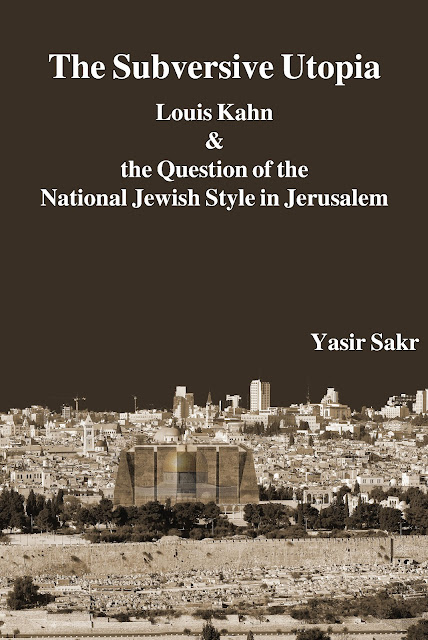The Story behind the Book: The Subversive Utopia (Sakr)

Today's book back story is about The Subversive Utopia by Dr. Yasir Sakr. From the publisher: In early 2006, through a mutual friend, while living in Jordan, the owners of MSI Press (at that time, not yet an incorporated business) met a young professor of architecture, Dr. Yasir Sakr, at his home where his young son, Abdelrahim, was present. Abdelrahim was about five years old and pretty much the same as 5-year-olds everywhere. Yasir had a book idea, based on his dissertation. The topic was to share research he had accomplished on the National Jewish architectural style in Jerusalem and the influence of Louis Kahn, an American architect born in Estonia when that country was part of Russia and transported to the US when his parents emigrated and whose design for the Hurva Synagogue, while never adopted did influence subsequent design for the synagogue and other sacred buildings. The typesetting of the book was a challenge, fitting immense drawings into small book page...


